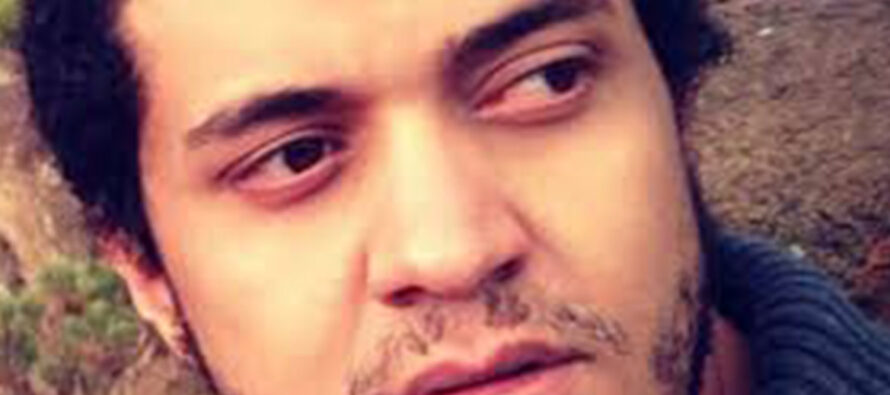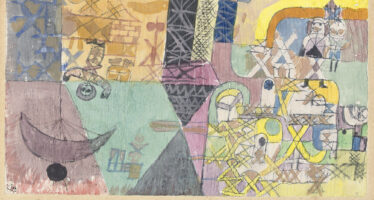Ashraf Fayadh: STILL IMPRISONED

![]()
Ashraf Fayadh:
STILL IMPRISONED
JULY 28th, 2016
“…earth
is the hell prepared for refugees.”
– Ashraf Fayadh
Thursday, July 28, 2016 has been named A DAY OF CREATIVITY for Palestinian poet and artist Ashraf Fayadh, originally arrested in 2013 in Abha, in southwest Saudi Arabia, imprisoned in January 2014 and sentenced to death in November 2015:
“…for his poetry, which accusers claimed ‘spread atheism,’ among other things. His death sentence was repealed this February, following worldwide protests. He was re-sentenced to eight years and 800 lashes.”[1]
Ashraf still stays imprisoned despite numerous calls internationally for his release. His father has since died following a stroke after hearing his son was to be beheaded, his son unable to visit him before he died nor was he allowed to attend his funeral, as his poem Tense Times describes so painfully.
PEN Centre, (USA) reminds us that Article 18 of the Universal Declaration of Human Rights (UDHR) states that:
‘[e]veryone has the right to freedom of thought, conscience and religion; this right includes freedom to change his religion or belief’.’
Article 19 of the Universal Declaration of Human Rights also states:
‘[e]veryone has the right to freedom of opinion and expression; this right includes freedom to hold opinions without interference and to seek, receive and impart information and ideas through any media and regardless of frontiers’.
“Saudi Arabia is therefore in absolute contravention of the rights that it as a member of the UN HRC has committed to protect.” PEN concludes.
Ashraf, a child of Palestinian refugees from the Gaza Strip, is currently serving his eight-year term in prison in the city of Abha (“I am incapable of laughing. / Completely incapable of smiling, even. / Incapable, at the same time, of crying. / Incapable of acting like a human being, / which doesn’t upset me in the slightest though it hurts so…”) and according to reports last February was also sentenced to 800 lashes over the course of 16 separate sessions. (…” though it hurts so / to have a body covered with light down, / to walk on two limbs, / to depend wholly on your mind…”) He will also be forced to renounce his poetry on official media. (“…to be drawn after your desires to the furthest point, / to have your freedom trapped, / to have others decide to kill you, / to miss those closest to you / without a chance to say farewell..”)
Human Rights Watch (HRW), also, are critical, to say the least, of the Saudi’s commitment to human rights:
“Saudi Arabia’s change in leadership in 2015 did not lead to significant human rights changes. Saudi authorities continued to arbitrarily arrest, try, and convict peaceful dissidents. Dozens of human rights defenders and activists are serving long prison sentences for criticizing authorities or advocating political and rights reforms. Authorities systematically discriminate against women and religious minorities. In 2015, Saudi Arabia carried out 158 executions, 63 for non-violent drug crimes. On January 2, 2016, Saudi Arabia executed 47 men for terrorism-related offenses…”[2]
In January this year HRW also issued a statement indicting Saudi Arabia for its ‘crackdown on poets, activists, dissidents in King Salman’s first year’:
“Saudi courts are sentencing prominent reform advocates, activists, and writers to lengthy jail terms – and even death – on vague charges related to the peaceful exercise of free expression.
‘Human rights advocates hoped that King Salman would rein in his country’s repression of peaceful dissidents, but the authorities harass and jail people for peacefully expressing reform-oriented opinions,’ said Sarah Leah Whitson, Middle East director. ‘The king should put an end to this sustained assault on free expression and release all peaceful activists and writers.'”
These are difficult times, in so many places, for people who value fundamental rights as well freedom of expression and the right to express in poetry or other media the hopes and dreams of the human heart.
“Ashraf Fayadh’s case is not the story of one man, but a symbol for all the victims of a deeply repressive regime that is supported by Western governments who claim to value freedom and democracy above all. Right now Saudi Arabia sits on the UN Human Rights Council, a body whose members are supposedly those who uphold the highest standards of civil liberties. Saudi Arabia is there since 2013 thanks to secret vote-trading deals conducted with the UK, as revealed by Wikileaks. Other Western countries keep weapons and legitimacy streaming towards Saudi Arabia in order to keep oil flowing towards themselves. Caught in the current are ordinary people like Ashraf Fayadh, whose rights go unheeded in the kingdom and abroad.”[3]
Ashraf writes in ‘Tense Times’, written in prison and published in the English Guardian on World Poetry Day, March 21st:
“I am a part of the universe with which the universe is angry,
a part of the earth of which the earth feels utterly ashamed,
a wretched human towards whom
other humans cannot maintain neutrality.
Neutrality: an illusion
like all the graces of which humans speak, so shamelessly theoretical.
Truth is an inadequate term, just like Man,
and love bumps about,
a miserable fly
trapped in a glass box.”
The Guardian also carried a quote in January from Ashraf Fayadh in prison, which we may remember today, July 28, as we raise our voices everywhere against this, and all injustice:
“I am in good health and staying positive but I am alone. Only my mother visits me twice a week. I just hope I will survive and that people continue to remember me. I am scared to be forgotten.”[4]
On this day, July 28, thanks to many who value freedom as both a human right as well as a potential for each of us to develop, both individually and collectively, and with this ‘technology’ that helps us come together to raise our voices…
…Ashraf Fayadh will not be forgotten…
…despite the enormous price he has already paid:
“The soldiers besiege me on all fronts
in uniforms of poor color.
Laws and regimes and statutes besiege me.
Sovereignty besieges me,
a highly concentrated instinct that living creatures cannot shake.
My loneliness besieges me.
My loneliness chokes me.
I am choked by depression, nervousness, worry.
Remorse, that I’m a member of the human race, kills me.” [5]
séamas carraher
July 2016
LISTEN to: Shtiyaq Shukri reading an excerpt from “Frida Kahlo’s Mustache” by Ashraf Fayadh:
OTHER poems by Ashraf Fayadh in translation can be found at Arablit.org
Mona Kareem‘s translation of Ashraf Fayadh’s “Disputed” Poems: (these poems appeared in Fayadh’s poetry collection ‘Instructions Within’ which was published by the Beirut-based Dar al-Farabi in 2008 and later banned from distribution in Saudi Arabia.)
***
[1] https://arablit.org/2016/07/13/make-noise-beauty-for-july-28-a-day-of-creativity-for-ashraf-fayadh/
[2] https://www.hrw.org/middle-east/n-africa/saudi-arabia
[3] http://www.worldwide-reading.com/archiv-en/14-01-2016-worldwide-reading-of-selected-poems-and-other-texts-in-support-of-ashraf-fayadh?set_language=en
[4] https://www.theguardian.com/books/2016/mar/21/jailed-palestinian-poet-ashraf-fayadh-saudi-arabia-poem-tense-times
[5] https://www.theguardian.com/books/2016/mar/21/tense-times-poem-by-ashraf-fayadh-world-poetry-day
Related Articles
Quince notas sencillas sobre Palabras a los intelectuales
![]()
Luis Toledo Sande Bohemia Digital Fidel Castro pronunció Palabras a los intelectuales en circunstancias que hablan del valor reconocido al
La decisión de tener una pierna
![]()
Santiago Alba RicoLa Calle del Medio Un niño tiene un accidente y pierde una pierna. A partir de ese momento,
Global Rights presents its first e-book today
![]()
Global Rights has decided to venture into the world of e-books.



